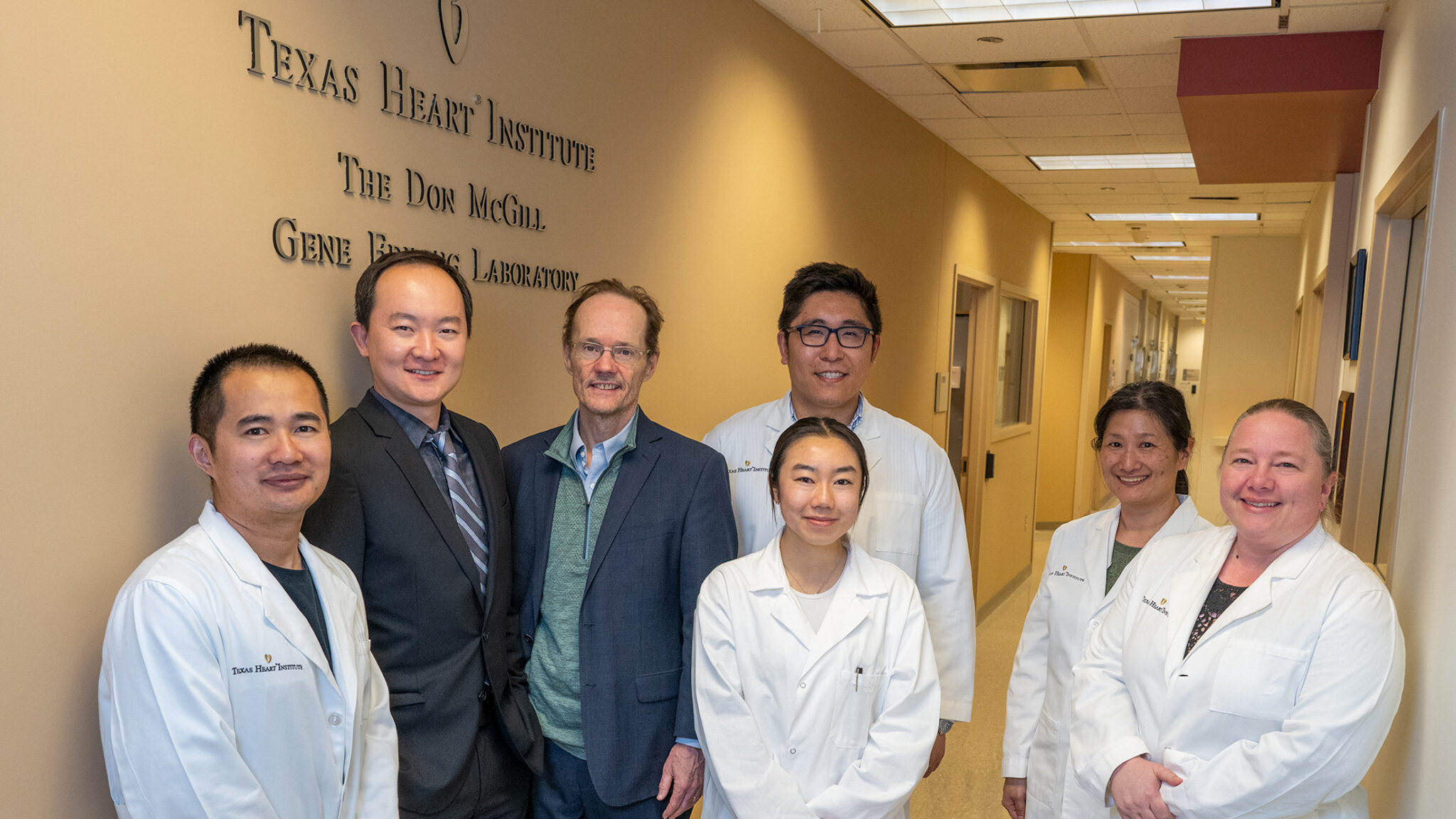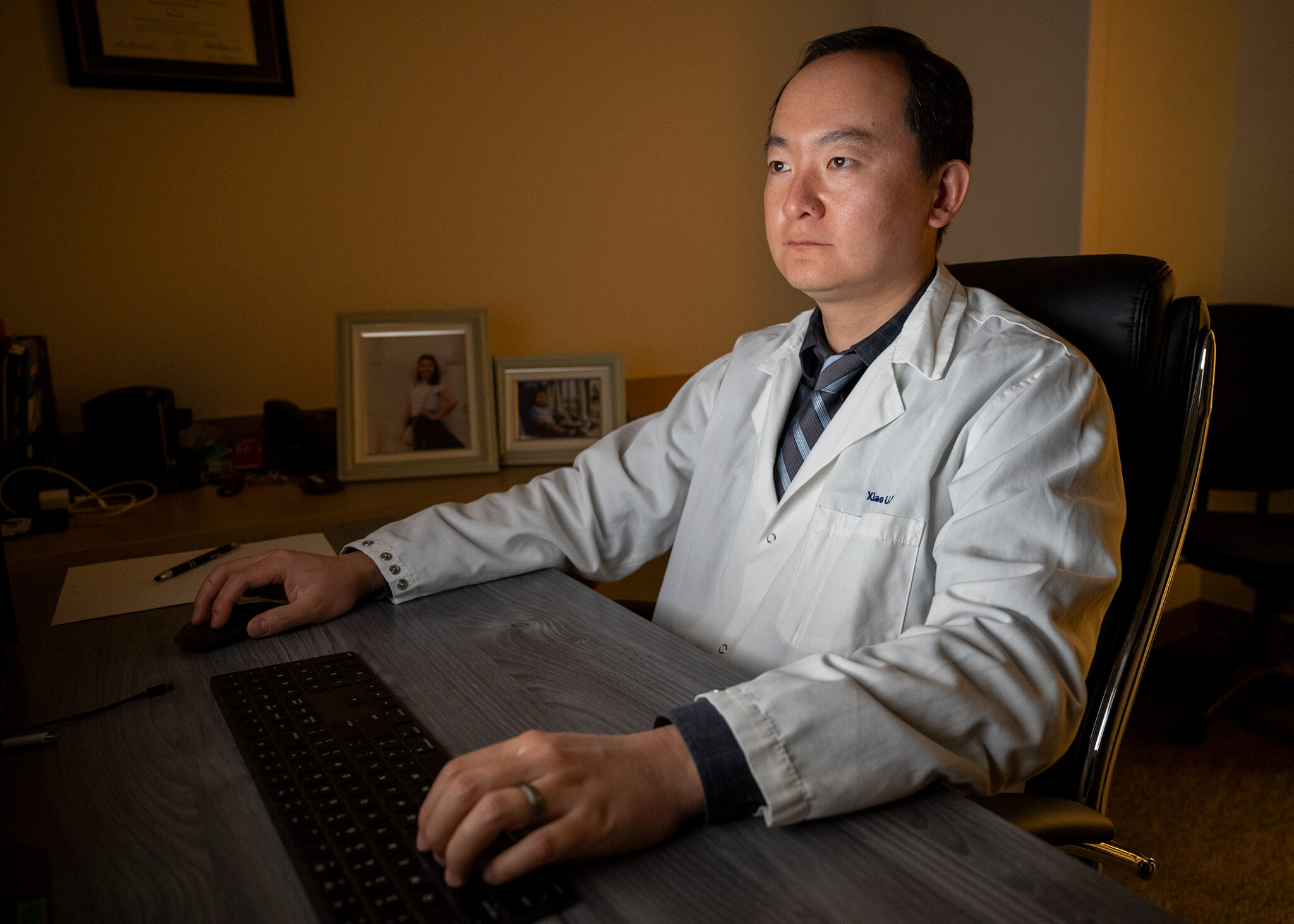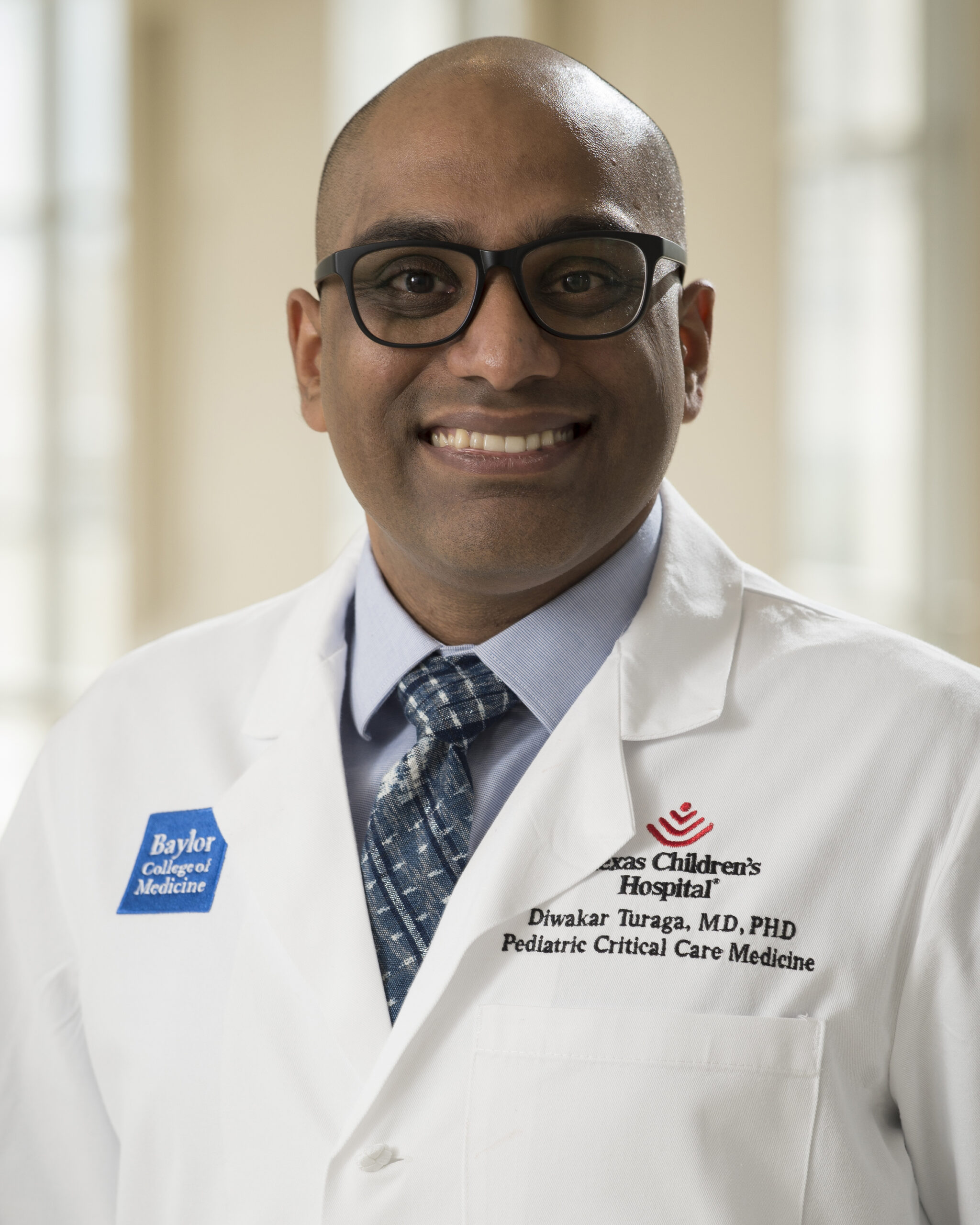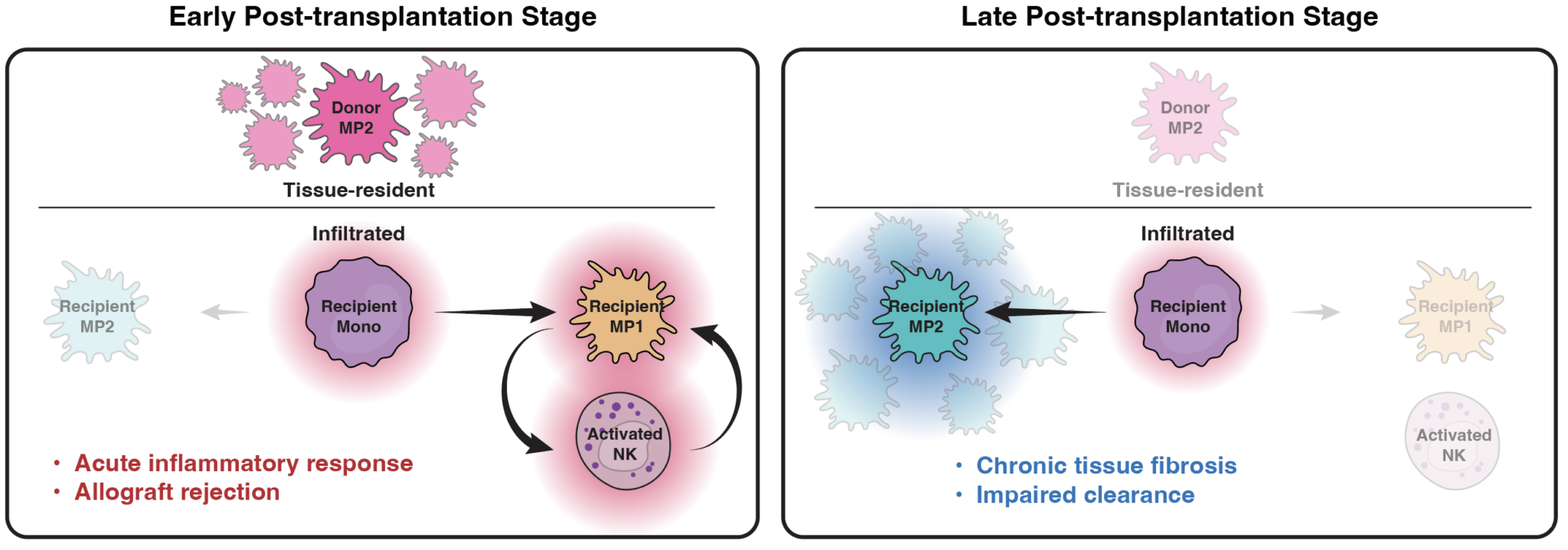Paving the Way for Improved Outcomes in Pediatric Heart Transplantation

Revolutionary Genomic Study Sheds Light on Immune Microenvironment in Transplanted Pediatric Hearts
HOUSTON (February 12, 2024) – Pediatric heart transplantation has long been hailed as a life-saving intervention for children suffering from end-stage heart failure. While the procedure offers hope, the long-term outcomes for these young patients remain suboptimal due to allograft rejection and graft failure. In a groundbreaking study, researchers from The Texas Heart Institute, Baylor College of Medicine, Texas Children’s Hospital, and the University of Texas Health Science Center McGovern Medical School have shed light on the underlying molecular cell states within transplanted pediatric hearts, paving the way for improved treatment strategies and enhancing the longevity of cardiac allografts.
The research, led by esteemed physician-scientist at The Texas Heart Institute (THI), Dr. James F. Martin, Vivian L. Smith Chair in Regenerative Medicine and Vice Chairman and Professor of Integrative Physiology at Baylor College of Medicine, single-cell genomics expert Dr. Xiao Li, THI Faculty and Assistant Investigator of the McGill Gene Editing Lab at THI and Dr. Diwakar Turaga, pediatric cardiac intensivist at Texas Children’s Hospital and assistant professor of pediatrics – critical care at Baylor College of Medicine utilized a unique dataset comprising rare heart samples from repeat heart transplantations. By harnessing cutting-edge single-nucleus RNA sequencing (snRNA-seq) techniques, the researchers could delve deep into the inflammatory myocardial microenvironment within human pediatric cardiac allografts.
“Our approach offers an unprecedented level of detail,” said Dr. Martin. “We were able to distinguish immune cells originating from the donor versus the recipient by leveraging naturally occurring genetic variants embedded within our sequencing data. This helps us gain a comprehensive understanding of the immune response dynamics within transplanted hearts.”
The study, which marks the first-ever description of molecular cell states within a transplanted pediatric heart at single-cell resolution, examined samples collected as early as 5 days post-transplantation and extending up to 12 years thereafter. Through meticulous analysis, the researchers discovered a rapid loss of donor-derived tissue-resident macrophages, which are crucial for graft acceptance and long-term success. In contrast, macrophages derived from the recipient’s circulation swiftly populated the heart shortly after transplantation. This imbalance between donor-derived and recipient-derived macrophages significantly contributed to allograft failure.

Pictured: Xiao Li, PhD Faculty and Assistant Investigator, McGill Gene Editing Lab at The Texas Heart Institute (THI)
“These findings have significant clinical implications,” explained Dr. Li. “By targeting the heightened inflammatory response mediated by recipient-derived macrophages and natural killer cells, we can potentially prevent early graft failure and acute rejection episodes. Additionally, preserving the population of resident macrophages within the transplanted heart could pave the way for novel immunomodulation strategies and greatly enhance the longevity of pediatric cardiac allografts.”
The research is a collaborative effort between leading medical institutions. Dr. Turaga added, “In the CICU, I take care of children who come in with heart rejection. Our medical therapies to treat rejection are still very limited. This study is a major step towards targeted immune therapies and precision medicine.”
Together, the team’s collective efforts have advanced our understanding of immune response dynamics in transplanted pediatric hearts, opening new avenues for more targeted and effective post-transplantation rejection management.

Diwakar Turaga, MD, PhD, Assistant Professor of Pediatrics, Section of Critical Care Medicine, Baylor College of Medicine
This groundbreaking study represents a major step forward in pediatric heart transplantation and highlights the power of cutting-edge genomic tools in unraveling the pathophysiology of allograft dysfunction. With further research and clinical implementation, these insights can potentially transform young patients’ lives and improve their long-term quality and quantity of life.
Read Full Article:
Li X, Turaga D, Li RG, Tsai C-R, Quinn JN, Zhao Y, Wilson R, Carlson K, Wang J, Spinner JA, Hickey EJ, Adachi I, Martin JF. The Macrophage Landscape Across the Lifespan of a Human Cardiac Allograft. Circulation. 2024;149. ahajournals.org/doi/10.1161/CIRCULATIONAHA.123.065294
Feature Photo: Pictured Left to Right: Fansen Meng, PhD, Xiao Li, PhD, James Martin, MD, PhD, Rich Li, PhD, Maggie Lim, Yuka Morikawa, PhD, Ann Bromley.
This study was supported by the Don McGill Gene Editing Laboratory of The Texas Heart Institute (Xiao Li), and funding from the American Heart Association (AHA) (824138 to James F. Martin, Diwakar Turaga, Iki Adachi; 970606 and 23EIA1039128 to Jun Wang) and National Institutes of Health (R01HL142704 to Jun Wang).
The content of this research is solely the responsibility of the authors and does not necessarily represent the official views of the NIH or the AHA.
Connect with the team on social media: James F. Martin @jmartinlab, Diwakar Turaga @DiwakarTuraga, Xiao Li @SirScienceAlot, and Rich Li @RichGangLi
ABOUT THE TEXAS HEART INSTITUTE
The Texas Heart Institute (THI) is an independent, nonprofit organization with the mission of improving cardiovascular health today through trailblazing research, thought leadership, education, and patient care. Located within the Texas Medical Center in Houston, Texas, and founded in 1962 by renowned cardiac surgeon Dr. Denton Cooley, THI performed the first successful heart transplant and total artificial heart implant in the United States. Since then, its physicians and surgeons have remained recognized as worldwide leaders in diagnosing and treating even the most complex cardiovascular conditions. Research programs at THI continue pushing cardiovascular science’s boundaries by translating laboratory discovery into patient care. THI has been ranked among the top cardiovascular centers in the United States by US News & World Report for over 30 years. www.texasheart.org
@texasheartinstitute
ABOUT BAYLOR COLLEGE OF MEDICINE
Baylor College of Medicine (www.bcm.edu) in Houston is recognized as a health sciences university and is known for excellence in education, research and patient care. Baylor is a top-ranked medical school and listed 20th among all U.S. medical schools for National Institutes of Health funding and No. 1 in Texas. The Baylor pediatrics program ranked 7th among all pediatric programs in U.S. News and World Report, reflecting the strong affiliation with Texas Children’s Hospital where our faculty care for pediatric patients and our students and residents train. Nationally our physician assistant program was ranked 3rd in the health disciplines category and our nurse anesthesia program ranked 2nd. Located in the Texas Medical Center, Baylor has affiliations with seven teaching hospitals and jointly owns and operates Baylor St. Luke’s Medical Center, part of St. Luke’s Health. Currently, Baylor has more than 3,000 trainees in medical, graduate, nurse anesthesia, physician assistant, orthotics and genetic counseling as well as residents and postdoctoral fellows. Follow Baylor College of Medicine on Facebook (http://www.facebook.com/BaylorCollegeOfMedicine) and Twitter (http://twitter.com/BCMHouston).
ABOUT TEXAS CHILDREN’S HOSPITAL
Texas Children’s, a nonprofit health care organization, is committed to creating a healthier future for children and women throughout the global community by leading in patient care, education and research. Consistently ranked as the best children’s hospital in Texas and among the top in the nation, Texas Children’s has garnered widespread recognition for its expertise and breakthroughs in pediatric and women’s health. The system includes the Texas Children’s Duncan NRI; the Feigin Tower for pediatric research; Texas Children’s Pavilion for Women, a comprehensive obstetrics/gynecology facility focusing on high-risk births; Texas Children’s Hospital West Campus, a community hospital in suburban West Houston; and Texas Children’s Hospital The Woodlands, the first hospital devoted to children’s care for communities north of Houston. The organization also created Texas Children’s Health Plan, the nation’s first HMO for children; Texas Children’s Pediatrics, the largest pediatric primary care network in the country; Texas Children’s Urgent Care clinics that specialize in after-hours care tailored specifically for children; and a global health program that s channeling care to children and women all over the world. Texas Children’s Hospital is affiliated with Baylor College of Medicine. For more information, visit www.texaschildrens.org.
Media Contacts
Keri Sprung
ksprung@texasheart.org
832-355-3792
Graciela Gutierrez
graciela.gutierrez@bcm.edu
713-798-4710
Katie Kolls
kxkolls@texaschildrens.org
832-824-2193






